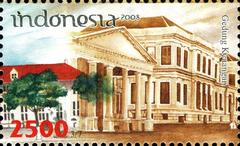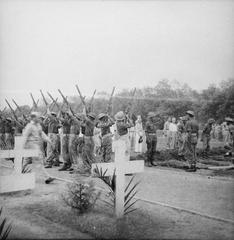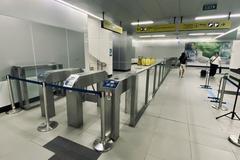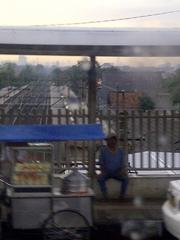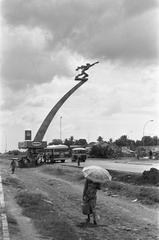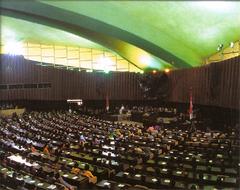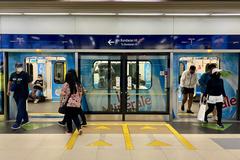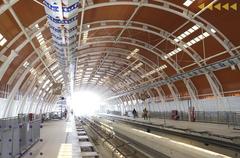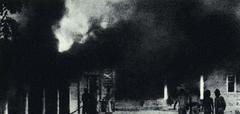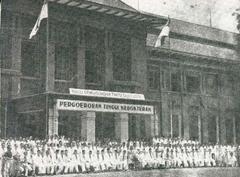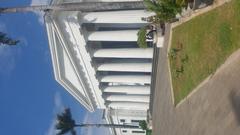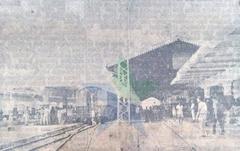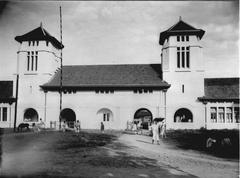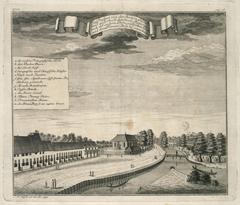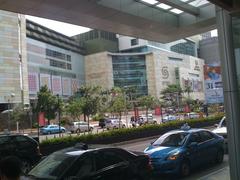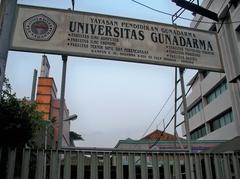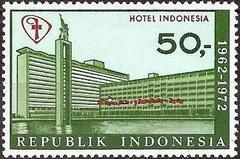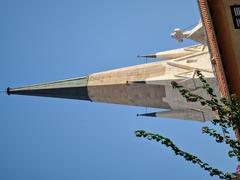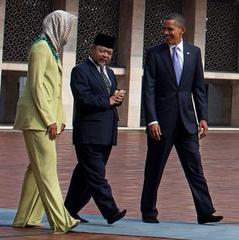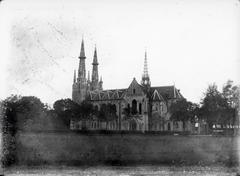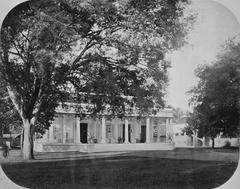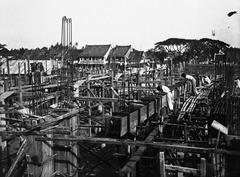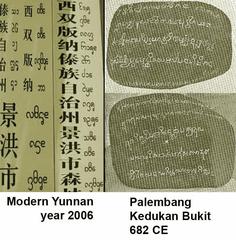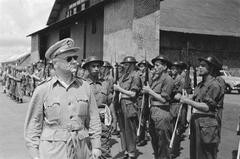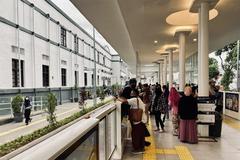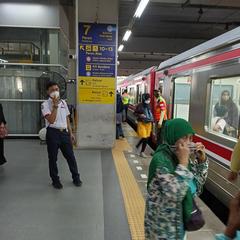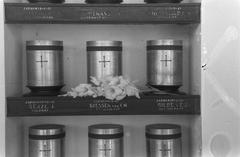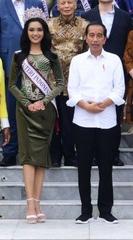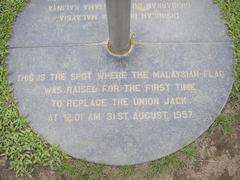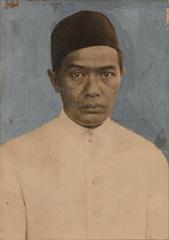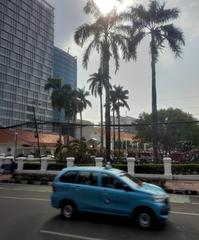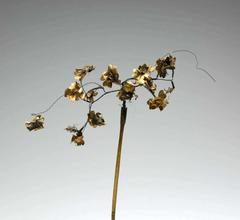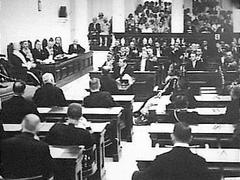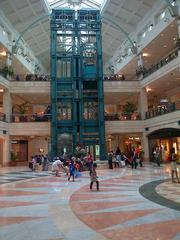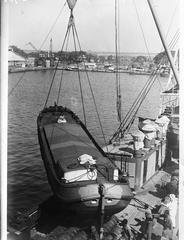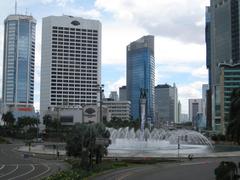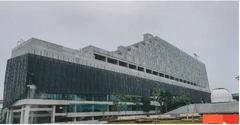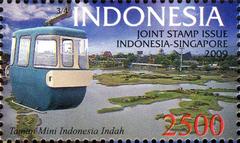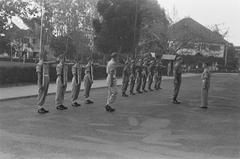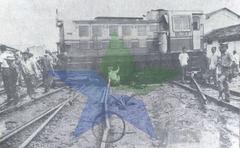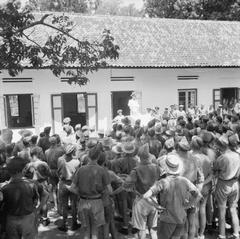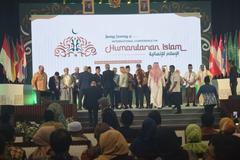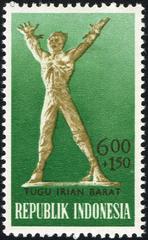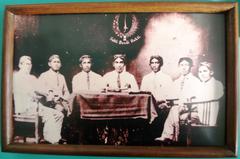
Hotel Der Nederlanden Jakarta: Visiting Hours, Tickets, and Historical Significance
Date: 04/07/2025
Introduction
Hotel Der Nederlanden, once the epitome of luxury in colonial Batavia (now Jakarta), stands out as a significant symbol of Jakarta’s layered past. Constructed originally as a private residence in 1794, it evolved into one of Batavia’s most celebrated hotels by the mid-19th century. Renowned for its neoclassical architecture, prime downtown location, and pivotal role in political and social life, Hotel Der Nederlanden hosted diplomats, colonial elites, and travelers, becoming a true hub of cosmopolitan colonial society (Wikipedia, Kurusetra, historibersama.com). Though demolished in 1969, the hotel’s legacy lives on in Jakarta’s urban memory and the surrounding landmarks that narrate the city’s transformation from colonial outpost to independent capital (Republika).
This guide explores Hotel Der Nederlanden’s history, cultural significance, and how its legacy can still be experienced today. You’ll find practical visitor information, travel tips, suggestions for nearby attractions, and recommendations for exploring Jakarta’s colonial heritage.
Historical Overview
Origins as a Private Residence (1794–1837)
Hotel Der Nederlanden began as a stately home built by Pieter Tenzy, a prominent colonial administrator, in 1794 (Wikipedia). Subsequent owners included Willem Hendrik van Eijsseldijk and, notably, Sir Thomas Stamford Raffles, who made significant improvements, including expanding the courtyard and adding European sculptures (PDF source). After Raffles’ departure, the property was acquired by the Dutch colonial government, setting the stage for its transformation.
Transformation into a Grand Colonial Hotel (1837–1942)
Renovated and reopened as Hotel Palais Royale in 1837, the establishment soon adopted the name Hotel Der Nederlanden in 1846 (Kurusetra). Ideally located near the colonial administrative center, the hotel became renowned for its modern amenities—private bungalows, electric lighting, and a grand dining hall (remodeled in 1906 by architect P.A.J. Moojen). It was widely regarded as a symbol of colonial opulence, hosting lavish events, banquets, and official receptions (Wikipedia). The hotel’s tiffin room in the business district further cemented its status among the elite.
Wartime Disruption and Post-Independence Changes
The Japanese occupation (1942–1945) brought significant disruption, with the hotel likely repurposed for military or administrative functions. After Indonesian independence, the hotel’s prestige faded. Renamed Hotel Dharma Nirmala in 1958, it reflected the nation’s move away from colonial legacies but retained its initials and some of its grandeur. The building later served as the headquarters for the presidential guard, Tjakrabirawa (Republika).
Demolition and Enduring Influence
Political unrest in the 1960s led to the building’s destruction. In 1969, the site was cleared for the construction of Bina Graha, the presidential office, erasing the hotel’s physical presence but not its historical or cultural impact (Wikipedia). Today, the story of Hotel Der Nederlanden endures in Jakarta’s collective memory and the city’s vibrant heritage trails.
Cultural and Social Significance
Hotel Der Nederlanden was more than just accommodation—it was a prominent social, political, and cultural landmark. Located in the heart of Weltevreden, the European quarter, it served as a venue for balls, banquets, and diplomatic gatherings. The hotel’s clientele was diverse—European officials, wealthy Chinese, Arab merchants, and indigenous elites—mirroring Batavia’s cosmopolitan character (historibersama.com, explorecity.life). It was also pivotal to early tourism, hosting the official tourist bureau in 1908 and promoting Batavia as a travel destination.
Visiting the Site Today
Can You Visit Hotel Der Nederlanden?
The original hotel no longer stands. Its former site is now occupied by Bina Graha, adjacent to the Presidential Palace in Central Jakarta (Republika). There are no visiting hours or tickets for the hotel itself, but the area is accessible and features several related historical attractions.
Location and Accessibility
- Address: Jalan Veteran III, Central Jakarta, near Istana Negara.
- Getting There: Accessible via TransJakarta Busway, commuter trains, and taxis. Bluebird Taxis are recommended for reliability (Nomadic Matt).
- Accessibility: The area is wheelchair accessible with paved sidewalks.
Guided Tours and Heritage Walks
Several operators offer guided walking tours of Central Jakarta and Kota Tua, often including the former hotel site and other colonial landmarks. These tours offer context and stories about Jakarta’s transformation (Backindo).
Nearby Attractions
- Jakarta History Museum (Museum Fatahillah): Offers detailed exhibits on Jakarta’s past.
- National Museum of Indonesia: Extensive collections on Indonesia’s history and culture (TravelSetu).
- Gedung Kesenian Jakarta (Schouwburg Theatre): Historic theater hosting cultural events.
- Kota Tua (Old Town): Well-preserved colonial district with museums, cafes, and photogenic streets.
- Medan Merdeka & National Monument (Monas): Iconic national landmarks near the hotel’s original site.
Practical Visitor Information
- Language: Bahasa Indonesia (English spoken in tourist areas).
- Currency: Indonesian Rupiah (IDR).
- Best Time to Visit: Dry season (June–September).
- Safety: Central Jakarta is generally safe; stay alert in crowded places.
- Transportation: Grab/Gojek apps, TransJakarta, commuter trains, and reliable taxis.
- Dress Code: Modest attire is recommended, especially at religious or official sites.
- Photography: Permitted in public areas; avoid photographing government buildings.
Frequently Asked Questions (FAQ)
Q: Can I visit the original Hotel Der Nederlanden?
A: No, the hotel was demolished in 1969 and replaced by government offices. You can visit the area and explore nearby colonial sites.
Q: Are there guided tours that include the hotel site?
A: Yes, several heritage tours in Jakarta include the former hotel location and other historical landmarks.
Q: What are the entrance fees for related attractions?
A: The hotel site itself is free to visit; museums and some attractions may charge a small fee.
Q: Is the area accessible for people with disabilities?
A: Yes, the area is generally accessible, with paved sidewalks and public transport.
Q: Where can I find historic photos of the hotel?
A: Online archives and museum collections feature historic images of Hotel Der Nederlanden.
Visuals and Interactive Resources
- [Historic images of Hotel Der Nederlanden’s façade—alt text: “Hotel Der Nederlanden Jakarta colonial architecture”]
- [Interactive map of Central Jakarta showing the former hotel site and nearby attractions]
- [Virtual tour of Kota Tua and colonial heritage sites]
Call to Action
To enhance your exploration of Jakarta’s colonial heritage, download the Audiala app for curated tours, maps, and insider tips (Audiala). For more articles on Jakarta’s historical sites and travel advice, visit our website and follow us on social media.
Summary and Final Tips
Though Hotel Der Nederlanden no longer stands, its legacy is alive in Jakarta’s architectural landscape and collective memory. The hotel’s journey—from grand colonial residence to political headquarters and finally its demolition—reflects the city’s broader narrative of colonialism, nationalism, and modernity (Wikipedia, Republika). By exploring the area, participating in heritage tours, and visiting nearby museums, travelers can connect with the city’s past in meaningful ways (Backindo, historibersama.com). For a seamless visit, use reliable transport, plan for the dry season, and consider digital guides like Audiala (Audiala).
Travel with cultural sensitivity and curiosity, and let Jakarta’s rich history inform and inspire your journey (explorecity.life).
Further Reading & Sources
- Hotel der Nederlanden, Wikipedia
- Megahnya Hotel Der Nederlanden: Hotel di Batavia yang Populer hingga Eropa, Kurusetra Republika
- Jakarta’s History of Tourism During the Ethical Policy, Historibersama
- Hotel Der Nederlanden dari Hotel Mewah Jadi Markas Tjakrabirawa, Republika Kurusetra
- Jakarta Historical Sites Guide, Backindo
- Jakarta Tourism Guide, TravelSetu
- Explore Jakarta: Colonial Heritage and Cultural Insights, ExploreCity Life
- Audiala Mobile App for Heritage Tours, Audiala






















